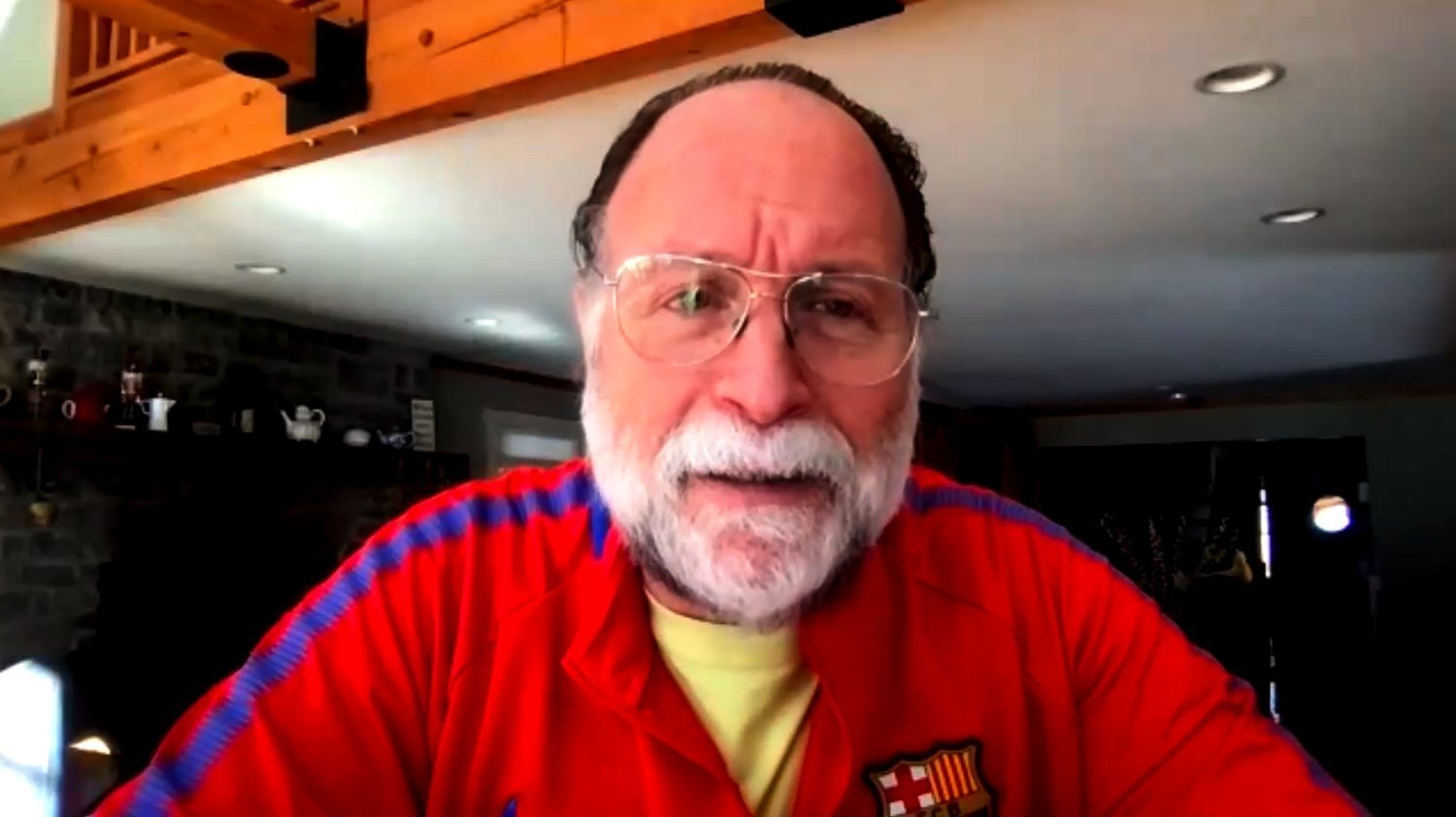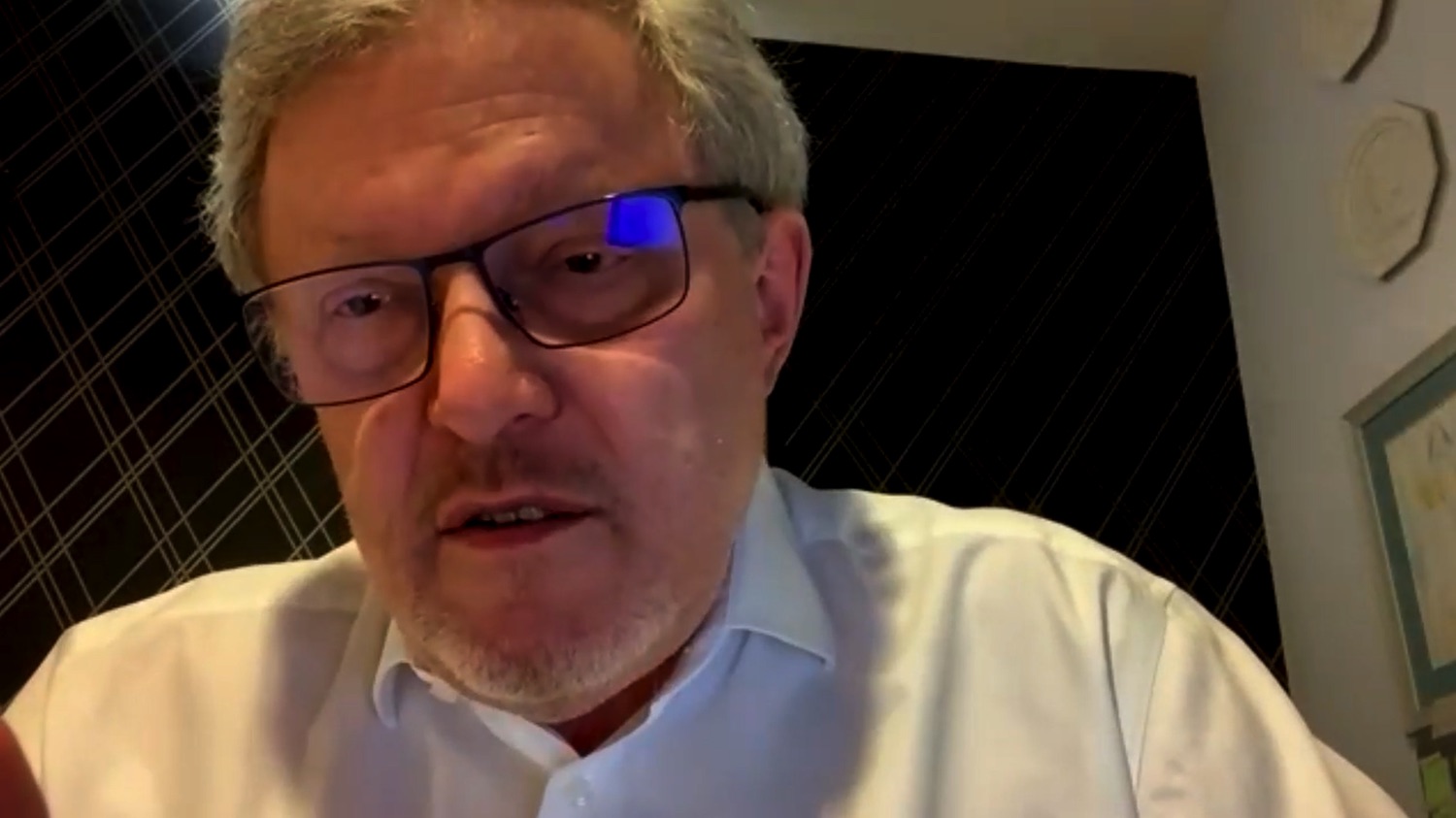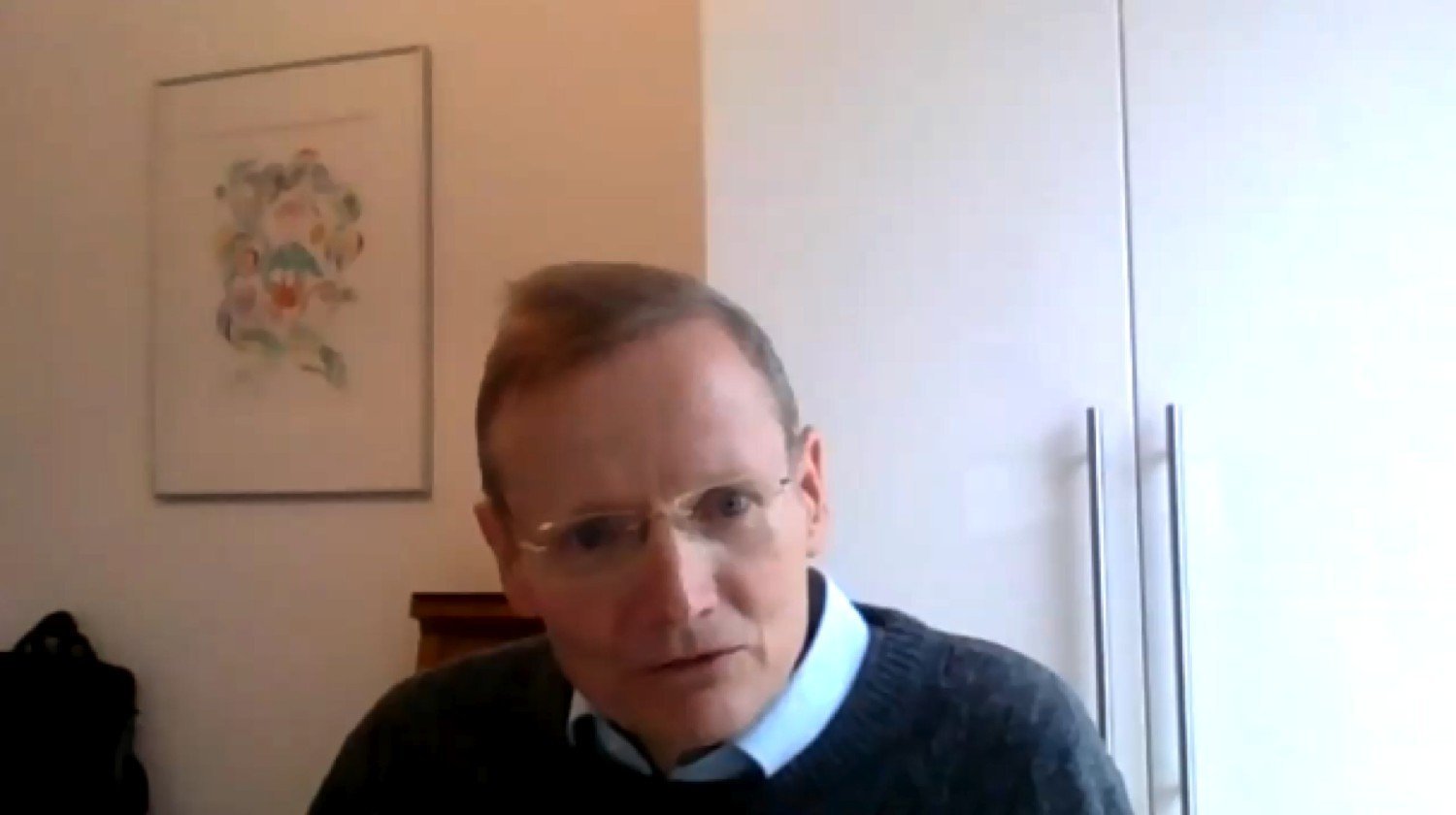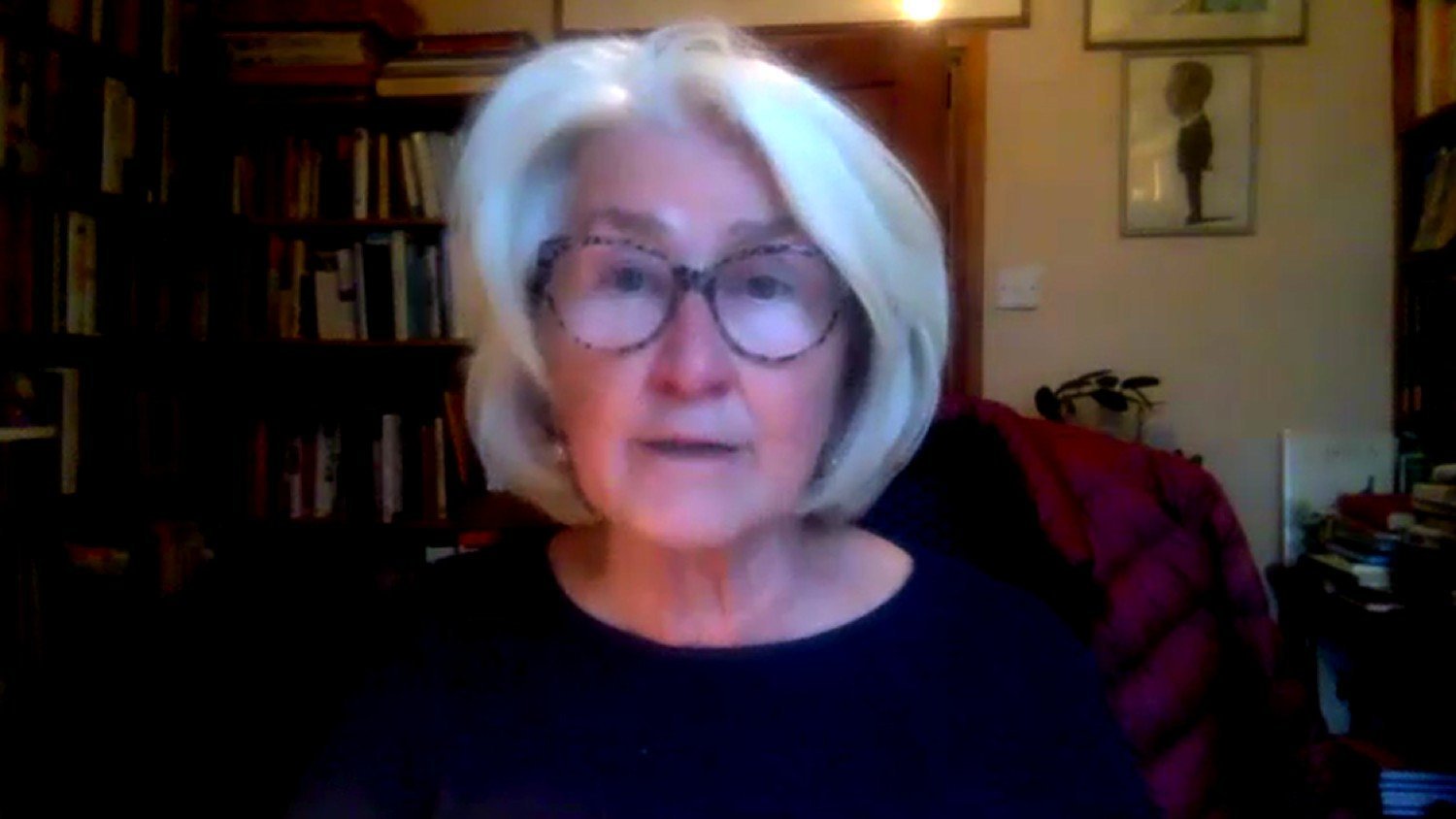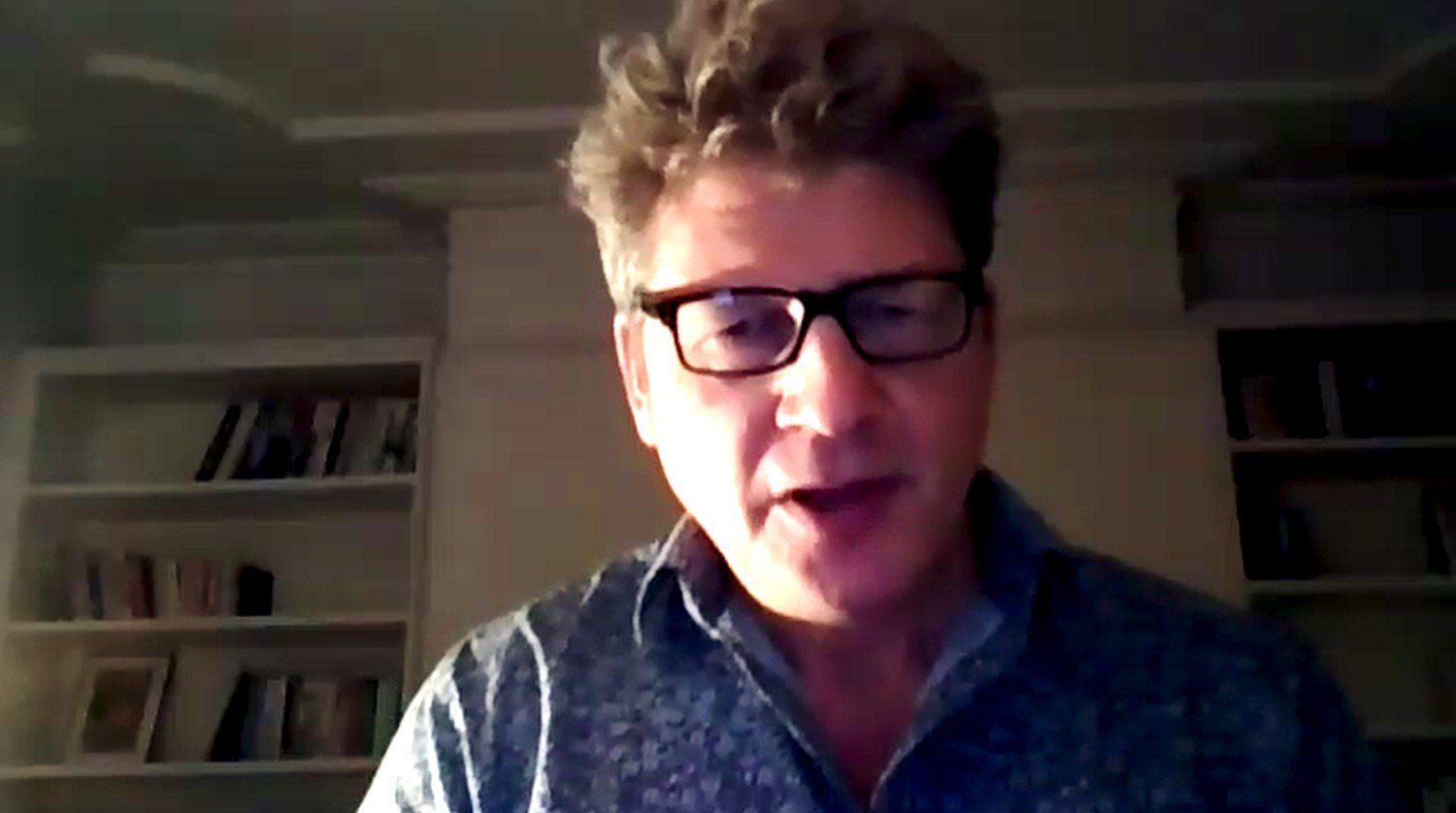Richard Bookstaber
American. Economist, author, noted expert in financial risk management
1. Why does economics matter?
I like to think of things in fairly broad terms, which is civilisations, or you could think of societies and, I think, there have been three layers that have to interact and you have to be complete to have a real society or civilisation. On the top layer you need to have a structure through a government and the military. At the bottom layer… It doesn’t have to be in this order… but the bottom layer is the social and the cultural, the natural glue or connexions, you know, the language, the religion. And the other layer is the economic layer.
And interestingly, the way that things have worked in academics in terms of studies, you have political science, you have sociology, and then you have economics. So if you think about the interaction within any group of people, any civilisation, all these components interact. So in my mind, economics should matter because it’s an integral part of any civilisation. It involves… You know, obviously we all know what it does: involves the production of goods, involves the means of exchange and a way of marshalling resources for the production.
But, what’s happened with economics, which makes it not matter so much, is it’s kind of pulled itself out of this cube of multilayer network to consider itself in isolation. So you can sort of ask why should… how could economics matter? And then ask: how does economics matter, given the structure of how it’s determined itself. Well, economics is always going to matter as a way of analysing the allocation of scarce resources. That’s been sort of a key component that’s been around for over a century.
And although there’s a huge amount written about it, to me, that’s not that hard a problem. But then there’s economics in terms of how you determine how wealth is divided, how interactions take place through the government, to the economy, to the social, and there it matters because when people are living together, they not only speak and socialise and go to church and share similar culture, they not only have a military and a government that pulls people together for defence, for creating infrastructure, for taxation, for the products, projects… But in the middle of it you have people who are working, who are producing. How they make the determination and the system with which they make that determination of what they produce, how they work, how the wealth is shared, is the essence of economics.
So I think economics matters more when it’s put in that context, because it’s now part of the holistic concept of what makes a civilisation. And if you ask the question of economics as it stands right now, where it simply is an engineering programme for figuring out the best way to allocate scarce resources, and of course, an economist will say, no, no, it’s a lot more than that. But I don’t really know, absent of macroeconomics, which is a reality of our particular economic system, I don’t know that, you know, the bulk of what goes on economics really expands much beyond that.
It certainly doesn’t consider as much as it might its connections to the other layers of this network.
2. What are the differences between economic science (academic economics) and economic engineering (policymaking)?
Economic science here, I need to focus really more on microeconomics and even more specifically, finance and within finance, even more specifically risk, because that’s my area of expertise.
Economics, I think, as everybody knows, has not done a good job when it comes to financial risk, when that risk really matters during times of market dislocation or crisis. And it can’t do it because it’s rooted in a mechanistic view of the world that comes from the origins of neoclassical economics going back to the mid 1880s, where it’s patterned itself after physics and other of the more mechanically driven sciences. The problem is that people are not machines. People are human.
They have experiences, they innovate, they create, they change their environment, and they change the world based on what’s occurring in the world. And yet neoclassical economics and the financial academic economics that comes from that, doesn’t allow for the complexity and the dynamics and the radical uncertainty that occurs in the real human world. You know, as you mentioned, I wrote a book that came out in 2017 from Princeton University Press called The End of Theory.
And I go through a lot of detail, this critique of standard economics, of academic economics and where it fails in what I call engineering economics or practical economics.
In the real world, you have emergent phenomena. You can have a fairly simple structure, but suddenly things go off the rails in unanticipated ways.
You can’t solve that. You can’t do that with the systems of equations that economics uses. In fact, you have systems that simply can’t be reduced to an analytical structure, what’s called computational irreducibility.
And that coupled with radical uncertainty, really moves the real world, the engineering world, away from the essential structure of academic economics, where things are based on a known distribution. So you don’t assume radical uncertainty. Where you can solve the world with equations in a stable structure which does away with both computationally reduce ability and also does away with the notion of emergent phenomenon, and we are because of that, everything is in a nice, stationary, stable world where in fact we’re in a world that would be called non-ergotic.
So and the irony is that the subset of economics that’s focused on these characteristics, which is really rooted in simulation methods and agent based modeling, has no place in standard economic and standard academic economics. And most of the work that’s done there is published in non economic journals and in fact sometimes very prestigious journals like Nature and Science. So I feel that academic economics, as it stands right now, simply does not relate to the world and the engineering that we need for the world, especially as it relates to risk within the financial system.
And I would say more broadly risk, but financial risk is not only where I live, but it’s the most recognizable and open to analysis of the risks that actually exist more broadly in the economy.
3. What role does economics play in society? Does it serve the common good?
So you might actually start with asking, does it serve the common good? Because if economics, and I say if… it’s the reality, but if economics focuses on an optimization paradigm and focuses on a competitive world, a capitalist world, even allowing for imperfections and oligopoly and behavioral economics and so on, it’s keeping us away from dealing with the reality that we have.
It may be that, you know, at the Economics 1 01 level, it’s hard to argue with these notions, but if you assert and analyze and put forward the economic model, which by my definition is the capitalist model, you’re doing a disservice long term to society and I would even be so bold to say to the civilization, because you are assuming a world that’s stable, a world where if you optimize now that optimisations good going forward.
And so you’re not taking the steps that you need to create a robust system that can survive as the world changes. And by the way, the world not only changes in ways that are out of our control, but it changes because of the way we alter the environment. Climate change is a great example of that. So you may have a pandemic which is out of our control, but some of the things that economics creates, that are in our control, have the same problem.
So, you know, climate change obviously is the one that’s at the forefront now. And a capitalist system that takes everything as a given going forward, obviously does not give us the analytical framework or the tools to deal with that. Sure.
4. Economics provides answers to problems related to markets, efficiency, profits, consumption and economic growth. Does economics do a good job in addressing the other issues people care about: climate change and the wider environment, the role of technology in society, issues of race and class, pandemics, etc.?
So I’m painting the dire picture and maybe the picture of economics because I’m looking out beyond the short term. Economics as a means for resource allocation and pricing, in the short term is a method that works, but, you know, we figured that out many decades ago. A lot of what we do now is playing around on the edges in ways that are not really… it’s like a second order in terms of the core issues that microeconomics and financial economics were focused on, you know, going back to the 50s and 60s.
So, the question of how do we price, how do we optimally allocate resources, how do we anticipate areas of demand? How do we diversify our portfolios to reduce risk? In the ninety five percent of the time where these actually most important issues don’t occur, because 95, 90 percent of the time the markets behave well on diversification works. So it’s not as if economics has no value, It’s not as if the pure academic approach of optimization and diversification in the financial system has no value… But it sort of has value when it doesn’t really matter at the existential level. And that’s true most of the time and that’s true in the short term. But as we get into periods of crisis, as soon as we get into the periods of major changes that can really threaten our society, this approach of everything else equal, of being in a stable system, of being in a system where you know all the states of nature or if you don’t know them, you can positive distribution for them… Isn’t going to get us, you know, where we want to be.
5. As we live in an age of economics and economists – in which economic developments feature prominently in our lives and economists have major influence over a wide range of policy and people – should economists be held accountable for their advice?
I think the way economists could be accountable, it really exists. Let’s ask the question the way that academic economics could be accountable. Right now the system, as I mentioned earlier, economics right now has no room for some of these new approaches that allow for complex dynamical systems. You know, as a term, generally, the way academics works, as everybody knows, is: any professor is guarding his particular area where he has staked his claim. He has all of his graduate students work in that area, and when they graduate, they’re relying on their professor and the editors of the journals to publish their work, which means their work better fit the agenda of those editors and of their professors.
So it’s a very closed system. In fact, if you look at all the different areas of academic pursuit in the sciences, and all include economics as a science, economics is at close to the very bottom in terms of its integration with other sciences, it really stands pretty much alone. So how do we make academics and research accountable? I don’t know the answer to that, but we certainly have a system right now that enforces its kind of looking into itself and reducing its accountability.
So it’s more a structural issue. And I don’t know the way that we break away from that, of course, we have had groups that are pushing to do that. The OECD is certainly at the forefront of that to try to find a forum and find a place for these complex dynamical approaches to have currency. The Institute for New Economic Thinking is similar in that regard. We need more of these things. One of the areas where I think there’s a big weakness, gets into the younger economists who may understand the weaknesses and the inbred characteristics of economics.
But they have to make a living. They have to satisfy the journal editors and their professors in order to get a job. In terms of being an academics, there have to be other areas, places that can support the research. If they’re willing to move away from that.
6. Does economics explain Capitalism? How would you define Capitalism?
I would define capitalism, practically speaking, as economic approach that optimizes based on the present and essentially gives very little weight to the future. That essentially what you have is people who are looking at the current needs to be the best at whatever they’re doing. But in doing so, they can’t really take action that might be better in the longer term because whoever is the in the present is the one who’s going to survive, at least short term.
7. No human system to date has so far been able to endure indefinitely - not ancient Egypt or Rome, not Feudal China or Europe, not the USSR. What about global Capitalism: can it survive in its current form?
Asking no system can endure indefinitely and can we survive?
I am talking beyond the short term. But, you know, I think it’s worth thinking in the extreme long term, which is the very essence of our civilization. And what can we do now? How do we need to alter things currently in order to address the true existential risk that we have that is, you know, very rarely considered. So can I just make a little stab at that?
Yeah, go ahead.
So I’ve already, you know, talked about the idea that we have to be robust, we have to look longer term.
In the real longer term, as this question indicates, is the risk of collapse of civilization. And unfortunately, when we think of civilization, the scope of civilization so long, that we tend not to really think about it, it is sort of beyond where we would think like… climate change, we know it can be an existential risk. But when we look at climate change, we look at it maybe 30 years out, maybe 50 at the most a hundred years out.
Well, when some of us are at the end of our lives and we’re sitting with our children and our grandchildren and maybe our great grandchildren, we will have sitting by us. Progeny who will still be alive, may be a hundred and fifty years from now, maybe even longer… So that is a term we ought to at least be thinking about, if we care about our children and our grandchildren, maybe our great grandchildren, where we can almost sort of touch it, where we literally will see them over the span of our lives.
If we look at civilization, 250 years out is not far. And yet we don’t look at the path of where the current direction climate change might be a hundred and fifty, two hundred fifty years out. If it’s as bad as we put it, 50 years out, it’s going to be far worse at that point. So I think the key thing is to maintain a very, very long term perspective, to understand what the structure we have now in terms of short term orientation and lack of robustness can mean over that length of time.
I’m actually working on a… I’ve written a paper which I hope will end up in a book that I call “From Wild West to Mad Max, The Life Cycle of Civilization”. And the key point in there is that there’s an interplay between the connections we create as a society and the dependence that we pulled together based on those interconnections and the rise and fall of a civilization. And this is true for the late Bronze Age, for Rome, for the Han dynasty.
Essentially what occurs is, we have connections that gradually sputter along with fits and starts with alliances that form break, which I called the Wild West, thinking of the Wild West in the US.
Finally connections emerges strong enough to create interdependence and civilization basically results from these connections and the interdependence due to those connections. Well, on the other side, with the collapse of civilization, the first thing to go are the connections, whether it’s from the war, climate change, famine or whatever.
And the problem is the connections break. But we still have the dependence because we can’t retool quickly enough in the face of these quickly breaking connections.
And so we end up in this world that I call Mad Max, which is based on the Mad Max movie. But, you know, you could think of -I can’t remember the name of the movie, but where it starts out with a car being pulled by horses… You know, we have this world that seems very strange because we’re trying to hold on to the dependency and interconnections that we had, but we don’t have the infrastructure for it.
I think that we need to look forward and sort of admit that we can’t have connections that will break globalization, will break supply chains, will break in an irretrievable way.
How do we maintain a civilization in the face to that? That’s where the essence of robustness needs to lay, and that’s where the current structure that comes from capitalism is over defining it. It prevents us from going.
8. Is Capitalism, or whatever we should call the current system, the best one to serve the needs of humanity, or can we imagine another one?
So in terms of survivability over more than the short term, the capitalism, as I’ve defined it, is not going to really do the job because longer term things change and they change in unexpected and unanticipatable ways.
If you try to approach the world with that as realization, you’re going to end up having what I call a coarse approach, one that is not optimal in the present, but will be good enough to survive over a set of other possible worlds. You’re not going to be able to do that if you have a capitalist system that rewards for somebody who’s the best in the current world. I wrote an article a long time ago, actually in 1985 in the Journal of Theoretical Biology called “On the optimality of coarse behavior rules”.
And in that I showed, in the animal realm, that the most survivable species are ones that have what I called coarse behavior rules, that they appeared to ignore information, they appeared to not be optimal for the current environment, but they did things that could work over a broad set of different worlds. A great example is the cockroach.
The cockroach is not an optimally designed insect for any particular world because it doesn’t smell, it doesn’t see in terms of its reaction to the environment. All it does, is uses very coarse behavior rule that simply moves in the opposite direction of a gust of wind that it feels on the little hairs on its legs. But it’s good enough to survive over a long period. Now, compare that with, say, a bird whose beak is optimally structured to eat some seed that’s abundant in its environment.
If its environment changes, it’s gone. But the cockroach has lived through cases where jungles have turned to deserts which have turned to cities. In my mind, in a capitalist world, that bird is going to dominate over the cockroach. It will be the maximum profit generating animal and so will dominate the cockroach. And that’s the nature of the capitalist system, as I would define it now. Another example would be asexual versus bisexual reproduction. Asexual reproduction is fine and efficient if the environment stays totally stable, because who needs all these, you know, random genomes that don’t work and variations of the species that are sort of irrelevant?
But the reason why sexual reproduction is dominated is although it’s not ideal compared to asexual in a specific environment, it’s mutations and variations allow at least a subset of it to survive if we go into a different environment, one that we can’t anticipate. So. For that reason, capitalism is not survivable, is not ideal if we think about a long span of civilization. What’s the alternative? Broadly speaking, and I don’t know what overarching system leads to this, but broadly speaking, you need a system that allows for variations that are not optimal right now but are good enough to survive.
You do not want a system that basically crowds those out, that makes those, so to speak, all bankrupt. And I don’t know if that’s socialism or totalitarianism or, you know, I can’t get into the political structure to do that, but that is basically what any political or policy structure has to move towards.
So I think you’ve answered the question about the survival of global capitalism. Do you want to say anything more about that or.
You know, I think that’s the essence of where I would go with capitalism. The other way to do it is to have some countries or some subset countries be strongly capitalist, but have other structures that are not that way, as opposed to try to impose a broad non capitalistic structure, so to speak, that allows for the survival of economic entities that are not optimal in the current environment.
About Richard Bookstaber
Rick Bookstaber is the author of The End of Theory (Princeton, 2017), and A Demon of Our Own Design (Wiley, 2007). He is the founder of Talagent Financial, a platform for providing risk management to asset owners. His career has spanned chief risk officer roles on both the buy-side at Moore Capital and Bridgewater, and on the sell-side at Morgan Stanley and Salomon. From 2009 to 2015 Rick served in the public sector at the SEC and the U.S. Treasury, drafting the Volcker Rule, building out the risk management structure for the Financial Stability Oversight Council, and developing an agent-based model to assess financial vulnerabilities.
Most recently he was the Chief Risk Officer in the Office of the CIO for the University of California, with oversight across its $160 billion pension and endowment portfolios. His various roles have put him at the center of the critical crises of the last three decades – working with portfolio insurance during the 1987 Crash while at Morgan Stanley, overseeing risk at Salomon during the 1998 failure of Long-Term Capital Management (dubbed “Salomon North”), and with the aftermath of the 2008 Crisis while in the regulatory sphere. A black belt in Brazilian jiu jitsu, Rick can be found training at the Renzo Gracie Academy in his free time. Rick received a Ph.D. in economics from MIT.

